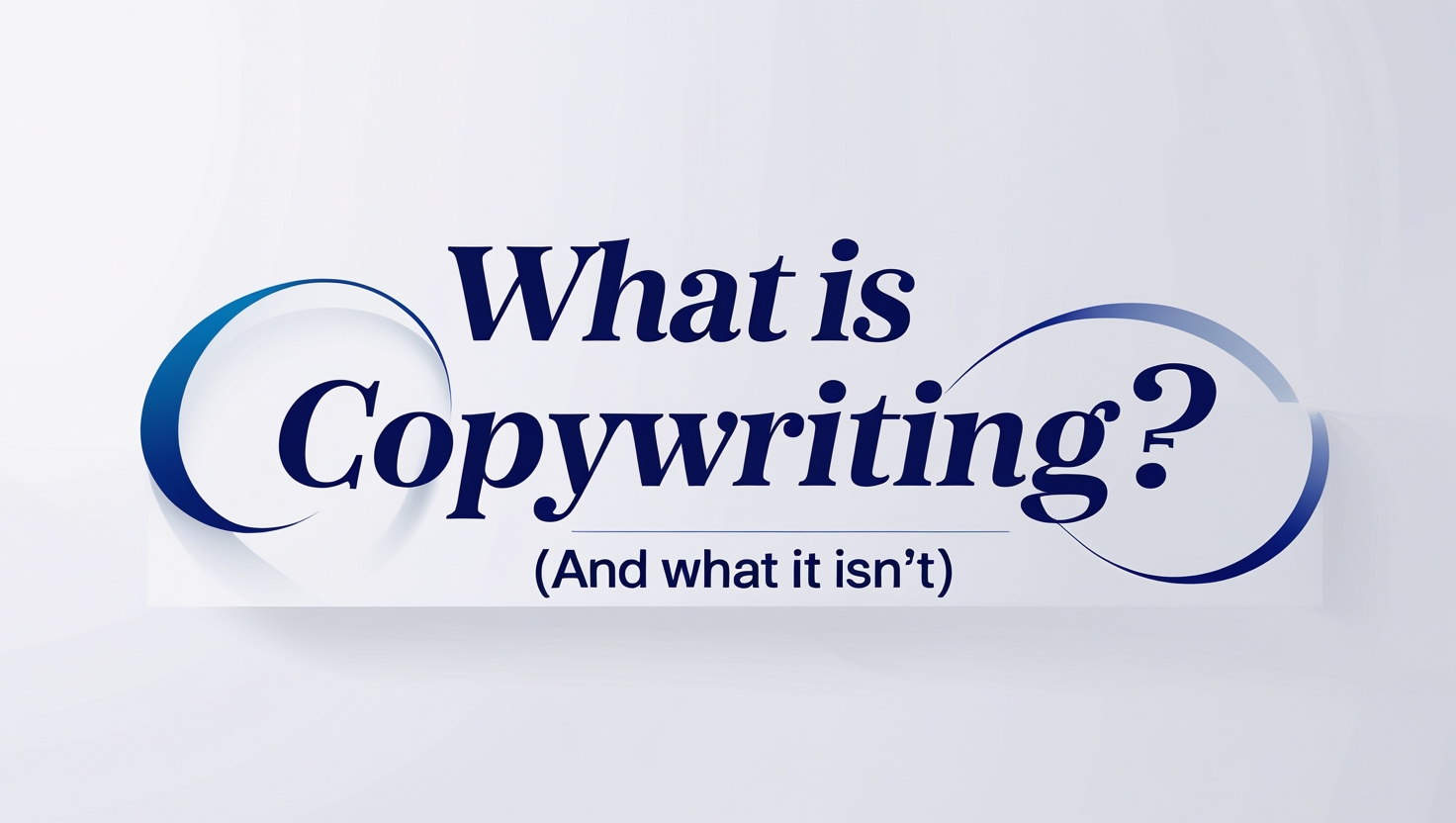What is Copywriting? (And What it isn’t)
Have you ever wondered exactly what is copywriting and why businesses rely on it heavily for success? Copywriting is the powerful skill of crafting persuasive and compelling content that motivates readers to take specific actions. Whether it’s buying a product, signing up for a newsletter, or engaging with a brand, effective copywriting is designed with clear intentions and strategic techniques.
Throughout this comprehensive guide, we’ll explore deeply the essence of copywriting, debunk common misconceptions, and provide clear examples and actionable insights to help you master this essential marketing skill.
The Fundamental Elements of Copywriting
Copywriting is not just about stringing words together—it’s about connecting deeply with an audience, tapping into their desires, needs, and fears, and guiding them toward a specific goal. Effective copywriting hinges upon several key elements:
- Understanding the Audience: Great copywriters conduct thorough audience research. They understand precisely what their readers want and need.
- Persuasion: Incorporating psychological principles such as scarcity, urgency, and social proof, copywriters compel readers to act.
- Clarity and Simplicity: Effective copy is always clear and easy to understand, avoiding complex jargon and ambiguity.
- Emotional Appeal: Engaging readers emotionally by addressing their core concerns and aspirations directly.
Real-Life Examples of Successful Copywriting
Copywriting is everywhere—from your favourite brand slogans to persuasive emails in your inbox. Some classic examples include:
- Nike’s “Just Do It”: A powerful call to action that inspires determination and boldness.
- Apple’s “Think Different”: Promotes individuality and innovative thinking.
- Dollar Shave Club’s Viral Video: Leveraged humour and simplicity to resonate deeply with its target audience, achieving impressive results quickly.
These campaigns highlight how impactful well-crafted copy can be, shaping brand identity and driving consumer behaviour.
What Copywriting Is NOT
It’s equally important to define clearly what copywriting is not, to avoid common pitfalls:
- Not Regular Content Writing: Copywriting specifically aims to persuade and drive actions, unlike typical blog posts or informational articles.
- Not Purely Creative Writing: While creativity is valuable, copywriting prioritizes results and measurable outcomes over literary artistry alone.
- Not Manipulative: Genuine copywriting provides true value, builds trust, and fosters genuine relationships, never resorting to deceitful tactics.
Debunking Myths About Copywriting
Several misconceptions exist about copywriting:
- “Anyone Can Be a Copywriter”: While many can learn copywriting, becoming skilled requires dedicated practice, strategy, and deep market understanding.
- “Copywriting Always Involves Aggressive Selling”: Effective copywriting subtly persuades through empathy and genuine engagement, not aggressive tactics.
Copywriting and SEO: A Winning Combination
Combining copywriting with SEO (Search Engine Optimization) dramatically enhances online visibility and effectiveness. An excellent copywriter integrates keywords naturally into persuasive copy, satisfying both human readers and search engine algorithms. A strategic balance is crucial to avoid keyword stuffing and ensure content remains engaging and relevant.
Essential Skills Every Copywriter Needs
If you aspire to become a successful copywriter, certain skills are essential:
- Strong Research Abilities: Understanding market trends, audience preferences, and competitor strategies.
- Mastery of Persuasive Techniques: Including scarcity, authority, reciprocity, and social proof.
- Clarity and Brevity: Conveying messages succinctly yet powerfully.
- Adaptability: Adjusting tone and style according to different audiences and mediums.
How to Start Your Copywriting Journey
Embarking on your copywriting journey involves strategic steps:
- Educate Yourself: Learn foundational skills through reputable online resources, courses, and workshops.
- Build a Portfolio: Create diverse samples showcasing your writing versatility.
- Gain Experience: Take on freelance projects, internships, or entry-level roles to practice and refine your skills.
- Network: Engage with industry professionals through platforms like LinkedIn, copywriting forums, and professional groups.
Monetizing Your Copywriting Skills
Once proficient, monetizing your skills through freelance copywriting, affiliate marketing, or launching a personal brand can be incredibly lucrative. Explore affiliate programs tailored to copywriters, offering tools, resources, and potential passive income opportunities (explore options here).
Continuous Improvement: Becoming an Expert
Great copywriters never stop learning. Continuous improvement is essential for sustained success:
- Regularly Analyze Successful Campaigns: Understand why specific campaigns work.
- Stay Updated on Trends: Keep abreast of emerging market trends, consumer behaviours, and evolving SEO practices.
- Seek Feedback: Regularly solicit constructive criticism from peers and mentors.
Conclusion
Clearly understanding exactly what copywriting is and what it does not position you for remarkable success in today’s competitive marketplace. Remember, great copywriting is strategic, persuasive, authentic, and driven by clear outcomes.
Are you ready to master copywriting and drive incredible results for your business or brand? Dive deeper into copywriting today, and watch your influence grow.
FAQs
What’s the difference between copywriting and content writing?
Copywriting focuses on persuading readers to take immediate action, whereas content writing is primarily aimed at informing, educating, or entertaining.
Can I become a copywriter without formal education?
Absolutely! Many successful copywriters are self-taught or learn through online courses, practice, and mentorship.
Why is emotional appeal important in copywriting?
Emotional appeal creates deeper connections with audiences, influencing their decisions and increasing the likelihood of action.







One Comment
Comments are closed.